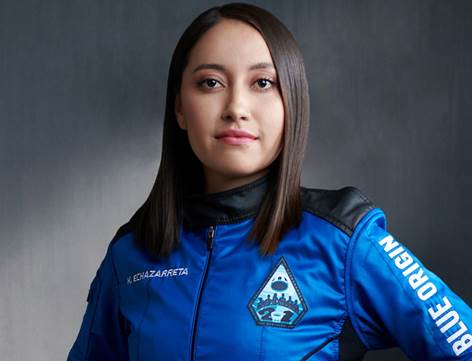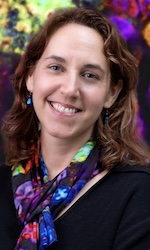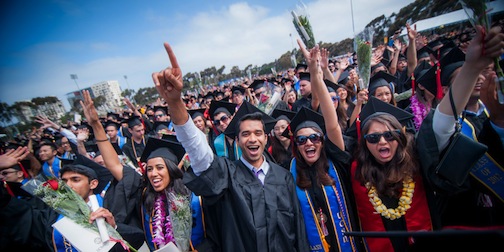Daily Business Report: May 13, 2024
Commentary
Newsom finally aligns with Legislature’s gloomier
budget outlook, blaming ‘massive volatility’
By Dan Walters
When Gov. Gavin Newsom proposed a 2024-25 state budget in January, he declared that the state faced a $38 billion deficit and chided journalists for citing wider projections in the gap between income and outgo from the Legislature’s budget analyst.
Nevertheless, state legislative analyst Gabe Petek stuck by his guns and a month later increased his deficit estimate during a three-year “budget window” to $73 billion, citing a $24 billion shortfall in revenue estimates over the period.
On Friday, Newsom unveiled his revised budget, covering the current fiscal year, the 2024-25 year and 2025-26, and tabbed the deficit at $44.9 billion through 2024-25. He estimated an additional $28.4 billion in 2025-26, totaling $73.3 billion or almost exactly what Petek had said it would be.
Newsom, indirectly agreeing with Petek’s gloomy revenue picture, blamed “massive volatility” in the state’s revenue system, particularly difficulty in projecting income taxes on capital gains, for the wide fluctuations in revenue estimates and reality. Over four years, he noted, revenues have fallen $165 billion short of estimates.
It’s not a new phenomenon. Over several decades, the state has become overwhelmingly dependent on personal income taxes to finance its budget, particularly taxes on high-income taxpayers and their investment earnings.
As that dependency increased, the state would experience massive windfalls during some years and deep revenue declines in others. When the state treasury was flush, governors and legislators would increase spending, and when revenues declined, they would face multibillion-dollar deficits.
Top Photo: Gov. Gavin Newsom addresses the media during a press conference unveiling his revised 2024-25 budget proposal at the Capitol Annex Swing Space in Sacramento on May 10, 2024. (Photo by Fred Greaves for CalMatters)
_______________________________________
Californians will see lower electricity rates and
a new fee that won’t vary with power use
By Ben Christopher | CalMatters
State utility regulators decided last week to let California’s largest power providers stick their customers with a new monthly flat fee in exchange for a reduction in the overall price of electricity, a controversial change to the way that millions of households pay their utility bills with weighty implications for state climate change policy.
Under the new policy, utilities will be required to reduce the price households pay for the electricity they use every time they charge a phone or run an air conditioner. That rate cut will vary from between 8 percent and 18 percent, depending on the utility, season and time of day, according to the commission’s analysis.
To make up for the lost revenue, regulators have introduced the concept of a “fixed charge,” a break from California electric billing tradition. For decades electric bills from Pacific Gas & Electric, Southern California Edison and San Diego Gas & Electric have been the “pay as you go” variety, with households only paying for the electricity they use.
Starting in late 2025 for SCE and SDG&E customers and in early 2026 for those with PG&E, the state’s investor-owned utilities will be able to charge customers a monthly fee regardless of how much power the customer draws from the grid. So-called fixed charges are a mainstay of electric billing across most of the country, with an average fee of roughly $11.
_______________________________________
Commencement season begins Friday in San Diego Community College District

Commencement season begins Friday, May 17, at the San Diego Community College District, with more than 16,000 degrees and certificates being handed out to graduates at the district’s four colleges ― San Diego City, Mesa, Miramar and Continuing Education ― over the next few weeks.
Among the notable commencement speakers scheduled is Katya Echazarreta, (left) a City College alumna who became the first Mexican-born woman in space. She will speak at City College’s commencement on May 23.
About 5,883 graduates from City, Mesa and Miramar colleges will receive degrees and certificates, an increase of 6 percent over 2023. Meanwhile, 10,554 vocational program certificates and high school diplomas will be awarded to College of Continuing Education graduates, an 11 percent increase over 2023.
_______________________________________
Science has an AI problem: This group says they can fix it

By Christine Clark | UC San Diego
AI holds the potential to help doctors find early markers of disease and accelerate research on other important scientific advances. But a growing body of evidence has revealed deep flaws in how machine learning is used in science, a problem that has swept through dozens of fields and implicated thousands of erroneous papers.
Now an interdisciplinary team of 19 researchers that includes Marta Serra-Garcia of the University of California San Diego’s Rady School of Management has published guidelinesfor the responsible use of machine learning in science.
_______________________________________
Joan Klein Jacobs, beloved philanthropist and community leader

Joan Klein Jacobs, a dedicated and visionary philanthropist, civic leader and patron of the arts, died on May 6. She was 91.
Jacobs left a legacy of vast positive impact on UC San Diego, the region and around the globe. Together with her husband, Irwin, Jacobs’ philanthropic support spanned the entirety of the UC San Diego campus – from health and medicine, to arts and culture, to technology and global transformation. In addition, she dedicated herself to serving on many university, community and civic boards, with the goal of enhancing the region with excellent health care, arts, culture and education.
“Joan was a visionary civic leader and philanthropist whose mission was to make the world a better place – and a dear personal friend,” said Chancellor Pradeep K. Khosla. “Whether it was providing the best quality health care in an environment that promoted healing, advocating for the arts and culture on campus and the broader region, or providing scholarships and fellowships for promising students who will go on to shape the future, Joan’s legacy will be long lasting at UC San Diego, the whole San Diego community and beyond. We will miss her greatly.”
_______________________________________
Dexcom gets green light to sell new device OTC
San Diego medtech giant Dexcom has received FDA approval to sell its continuous glucose monitor, Stelo, over the counter, targeting a segment of Type 2 diabetes patients who do not use insulin. The announcement comes on the heels of its partnership with Solana Beach-based MD Revolution, which will integrate Dexcom’s monitoring systems with its own remote care management solutions.
Prebys Foundation awards $7 million in grants to local researchers
The Prebys Foundation awarded $500,000 grants each to 14 researchers at SDSU, USD, UC San Diego, and other local research institutes, totaling $7 million in support of groundbreaking medical research on cancer, infectious disease, and more. This initiative is designed to bridge the gap for women and underrepresented groups in top research positions by offering funding to projects tha may lack support.
Biolinq raises $58 million
Biolinq, a San Diego-based wearable tech startup, secured $58 million in funding to advance its ultra-tiny skin patch for glucose monitoring. Leveraging microsensors and electrochemistry, the company’s technology offers real-time feedback on glucose levels without drawingnblood, positioning it as a differentiated solution for diabetes management.
Forbes Best Employers for Diversity includes San Diego companies Vertex, Illumina
Major San Diego companies have been ranked among Forbes Best Employers for Diversity in 2024. Vertex Pharmaceuticals in Torrey Pines made the list at No. 81, as did Illumina at No. 171. For the sixth consecutive year, Sempra has been named to the list, coming in at No. 184 and eighth among utility companies. Kaiser Permanente ranked at No. 243.
In addition, Kaiser Permanente ranked at No. 243 and UC San Diego at No. 358. Gilead Sciences of Oceanside followed closely at No. 364.
Caliway to present clinical advancements at 2024 BIO International Convention
Caliway Biopharmaceuticals announced its participation to share the latest clinical advancements at the upcoming 2024 BIO International Convention on Wednesday, June 5, at 11:45 a.m. PDT. The presentation will take place in Company Presentation Theater 2 at the San Diego Convention Center. The annual BIO International Convention, hosted by Biotechnology Innovation Organization (BIO), stands as the world’s premier industry event.
Serotonin Centers to rejuvenate San Diego with latest franchise signing
Serotonin Centers, the nation’s fastest-growing anti-aging/longevity franchise, has announced plans to continue the buildout of the brand’s West Coast roots, having finalized its latest development deal for a new center in San Diego. A San Diego-based ownership group comprised of medical practitioners – Anazosis, LLC – named after the ancient Greek term for rejuvenation – has signed on to open a Serotonin Centers location in the Del Mar area, and is projected to make its public debut in early 2025.
UC San Diego to get $1 million over four years from CIEE
UC San Diego is one of four nationallly recognized institutions of higher education to receive $1 million over four years from the Council on International Educational Exchange (CIEE) to establish new study abroad programs that will advance institutional goals while improving student outcomes. Each of the four have pledged to match the grant. The schools besides UC San Diego are Arizona State University, Northeastern University and The Borough of Manhattan Community College.
Aethlon Medical reports positive results from Hemopurifier study
Aethlon Medical, a medical therapeutic company focused on developing products to treat cancer and life-threatening infectious diseases, announced positive results from an in vitro binding study of its Hemopurifier in removing extracellular vesicles (EVs) from plasma. The translational study provides pre-clinical evidence to support Aethlon’s planned phase 1 safety, feasibility and dose-finding clinical trials of the Hemopurifier in patients with solid tumors who have stable or progressive disease during anti-PD-1 monotherapy treatment, such as Keytruda or Opdivo.
Ecodrive awarded $300,000 in seed funding at San Diego Angel Conference V1
San Diego Angel Conference at the University of San Diego, a program in its sixth year that activates accredited angel investors and engages promising early-stage companies, awarded two startups with angel funding for their potentially disruptive solutions. Ecodrive took the top prize with $300,000. Runner up Achieve Clinics was awarded $100,000 in funding. The SDAC VI People’s Choice honor went to Kids Care Finder.
Salk Institute’s Professor Susan Kaech elected to U.S. National Academy of Sciences

Salk Institute Professor Susan Kaech has been elected to the U.S. National Academy of Sciences. Kaech is one of 120 new members and 24 international members to be elected to the academy in recognition of their distinguished and continuing achievements in original research. The election is considered one of the highest honors accorded to a scientist in the United States. Kaech’s work has transformed the fields of immunology and cancer biology and inspires new approaches to cancer immunotherapy.



